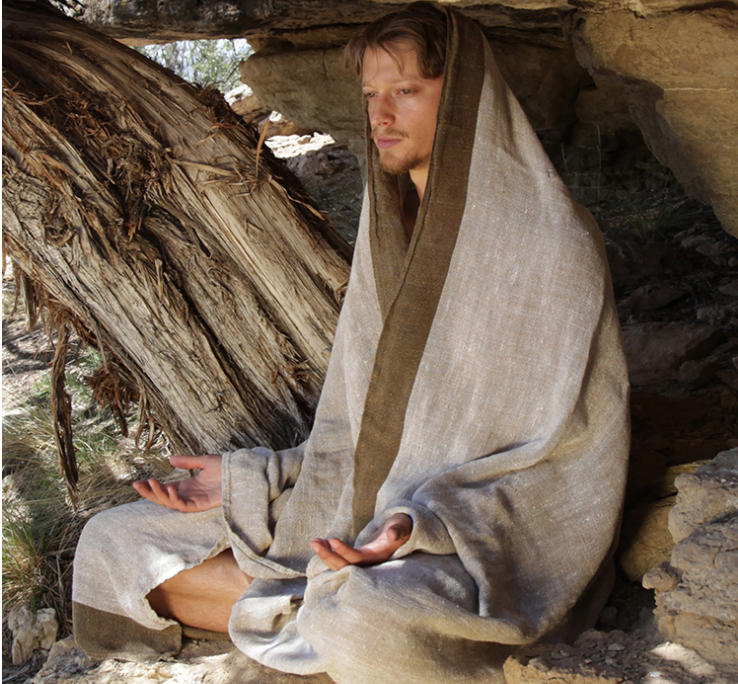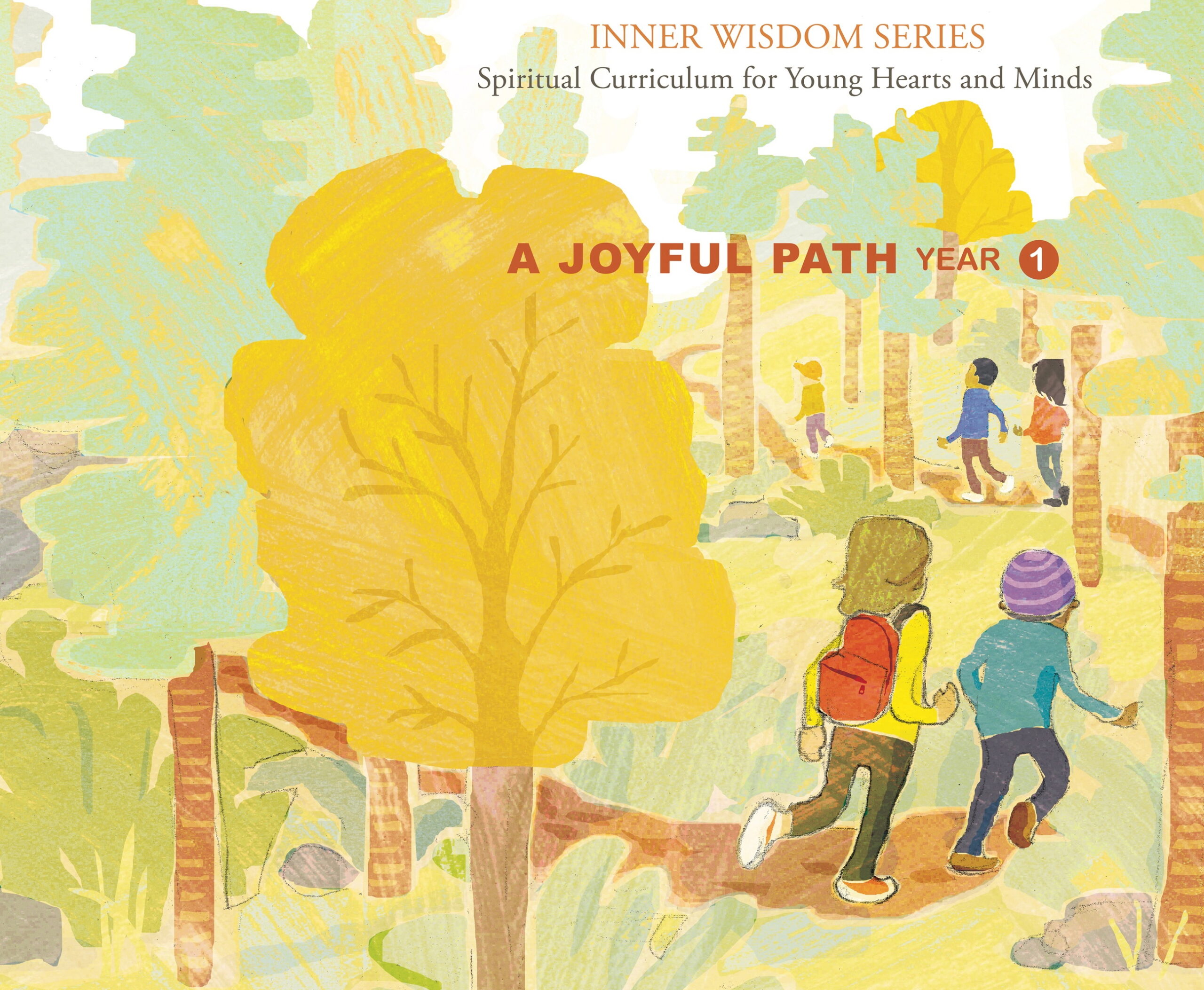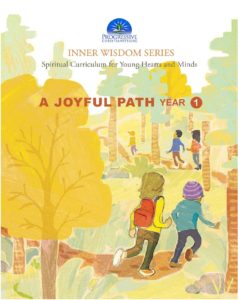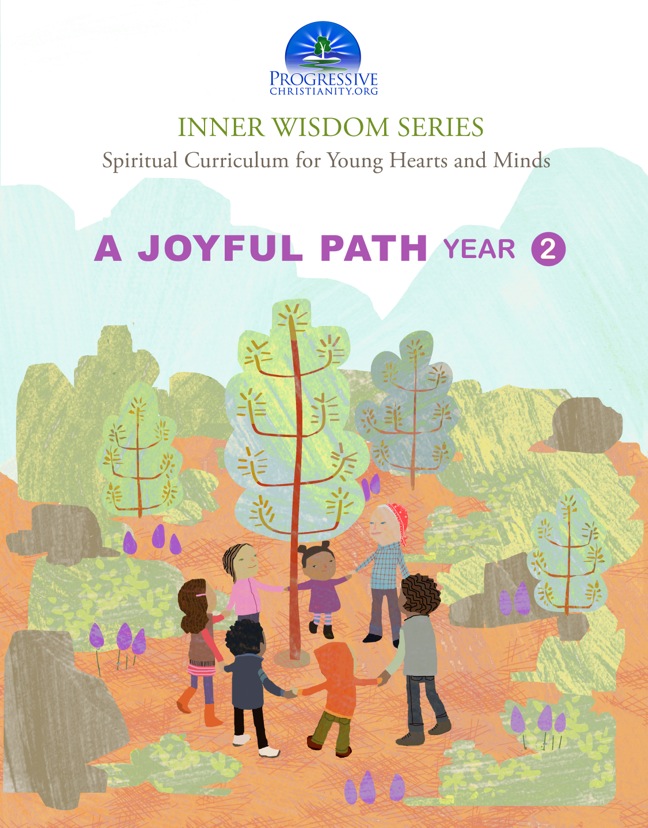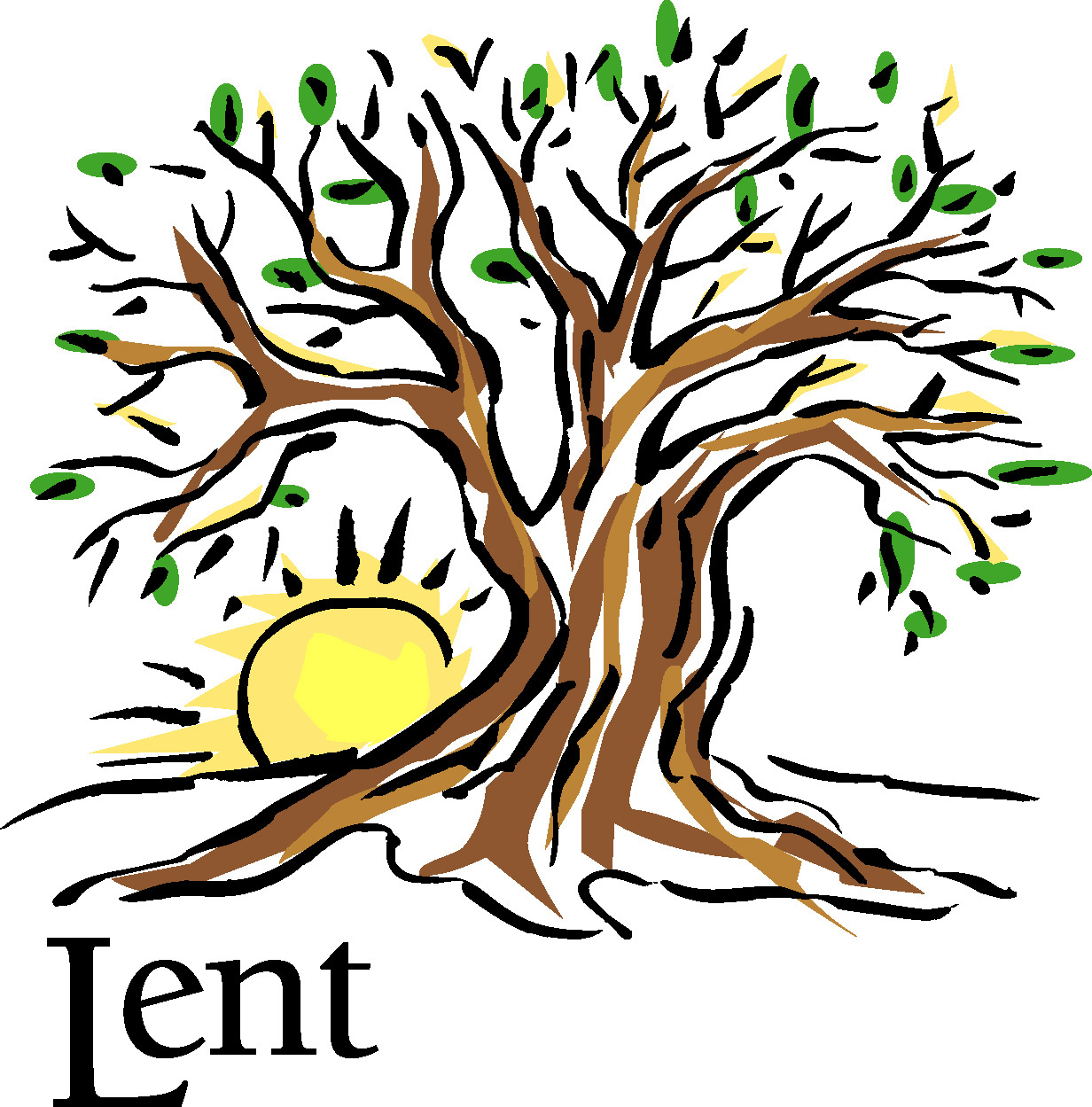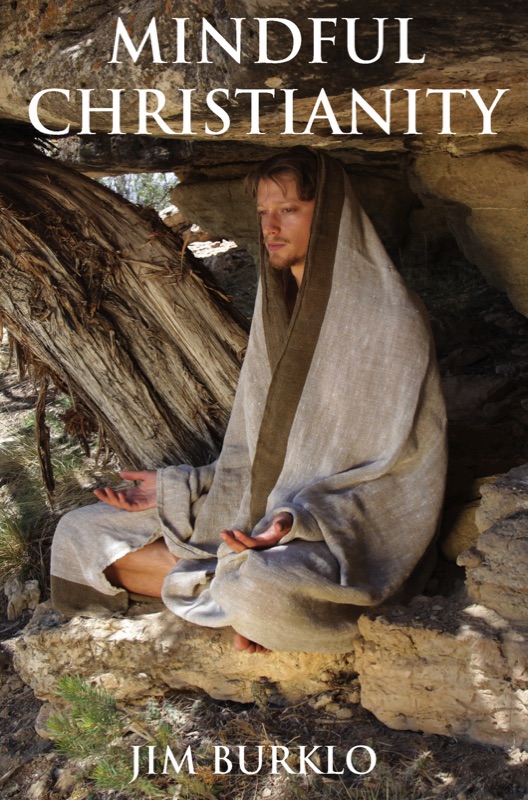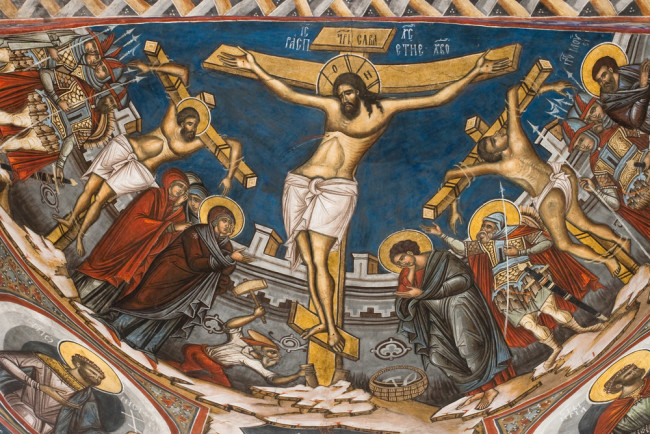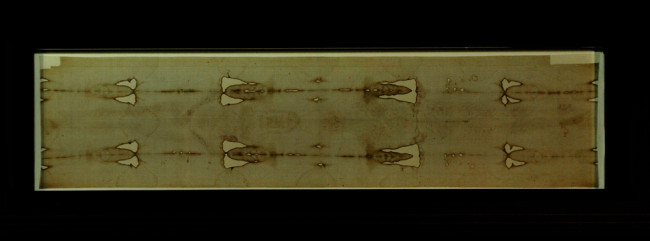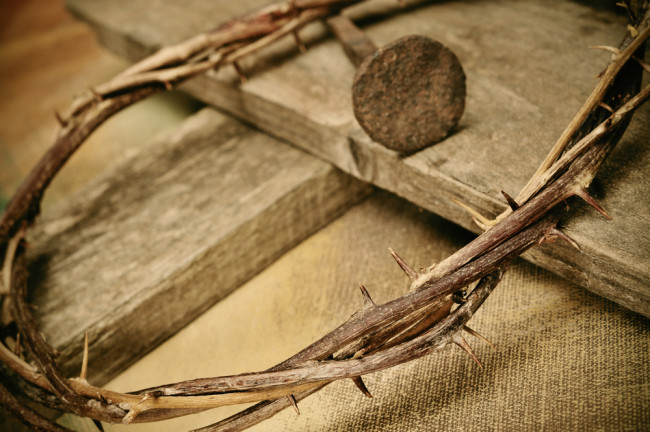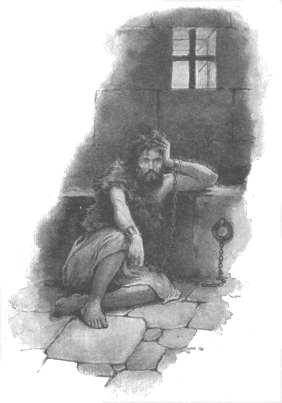According to the Torah, on the Sabbath you can pick up an apple that naturally falls from a tree onto the ground, but you can’t pick it from the tree. Mindful Christian meditative prayer practice is very similar. In it, we take time to see things as they are, without interfering with them or trying to fix or change them.
Progressive Christian Spiritual Curriculum that is Compassionate, Intelligent, Inter-Spiritual, and Non-Dogmatic. This is Year One of our A Joyful Path curriculum for ages 6-10. 38 Lessons.
*** This page has moved - please click here to Order Hard Copy and DVD. To see all Purchase Options Please Click Here.
In A Joyful Path, Year Two, we focus on some of the main tenets of Progressive Christianity and Spirituality, giving our children the foundation they need to walk the path of Jesus in today's world. It has stories and affirmations written to help children clarify their own personal beliefs while staying open to the wisdom of other traditions.
Today marks the first Sunday of Lent, a time of self-reflection and lament. It is often considered a season of darkness. Something I am all too familiar with. The season of Lent reminds me of walking a labyrinth. A labyrinth is a path that requires you to go in and come out the same way in which you entered. It is a journey towards the center, then back out again, into the world to which you came. You cannot skip the part you did not like, or go around a difficult feeling, you must return the exact way you entered. But, even though the path does not change, you have, and in this we find new life.
The season of Lent is traditionally understood to be a time for reflection, contrition, and consideration of the sacrifice Jesus undertook for our sins. It has been, as you know, traditionally recognized for the forty days leading up to Easter. Preceded by Shrove Tuesday, upon which Christians are to prepare to confess their sins, Lent is entered into as a holy season of penitence.
Lent is a kind of sabbatical: a break from the usual routines of our lives, over the forty-day period from Ash Wednesday until Easter. On the Sabbath, in the Jewish tradition, the prohibition from work is more precisely a break from doing things that interfere with Nature’s processes. According to the Torah, on the Sabbath you can pick up an apple that naturally falls from a tree onto the ground, but you can’t pick it from the tree. Mindful Christian meditative prayer practice is very similar. In it, we take time to see things as they are, without interfering with them or trying to fix or change them. Once we know what is, we can then think and act wisely on what ought to be.
"... remain here, and stay awake with me." Jesus, Matthew 26: 38 One night of our dog's life lasted for just a few
From the Festive Worship collection
THEME The Connecting Solitude THOUGHTS FOR REFLECTION The spiritual desert is not a foe to be conquered but an emptiness to be affirmed: for when we are full, we perceive nothing, but when we are empty we can receive everything.
A poem by Anna Akhmatova (1889-1966)
"Weep not for Me, Mother, in the grave I have life."
The dry bones raised by Ezekiel are a metaphor for those who died in the service of God’s justice: those who died working to restore God’s distributive justice-compassion to God’s Earth, and who themselves never saw the transformation. The army of dry bones is an army exiled from justice. Fairness demands that if Jesus was resurrected into an Earth transformed into God’s realm of justice-compassion, then all the other martyrs who died too soon should also be raised with him. “But in fact,” Paul writes in 1 Corinthians 15:20, “Christ has been raised from the dead, the first fruits of those who have died.” It is the Christ – the transformed and transfigured post-Easter Jesus – who has started that general resurrection, which restores justice-compassion to a transformed Earth. The transformation has begun with Jesus, and continues with you and me – IF we sign on to the program.
A Journey of Faith: Moving On
A growing number of progressive Christians, for a decade or more, have seen themselves less and less of being a theist, that is as one who believes in a 'God out there' who intervenes with and over rules the laws of nature. Yet many of these are still very happy to use the words Father, Son and Holy Spirit. This Trinitarian descriptor expresses the way in which Christians may encounter or interpret our 'God', but 'God' is much more. For many progressive Christians, the Trinity is an expression of different people and communities living in perfect harmony. Now that really is heaven on earth!
"you who delight me" is in two parts: poems of love—secular and spirited writing about people, places and events; and words of spirit and faith—inclusive language, contemporary liturgies for individual contemplation and progressive faith communities.
A Lenten tradition in Western Christianity is to meditate upon the journey Christ took to Calvary. These stations or steps are found both in the Scriptures and in the traditions and legends of catholic Christianity. For many this practice is used to participate in the suffering and sacrifice endured by Christ. I encourage you to also take up this journey seeing within each station a calling for the modern, progressive Christian to grow in the ways and love of God. Meditate upon each station considering the questions or thoughts presented with a Scriptural verse to ponder and a brief prayer of the heart. In John 15:12 Jesus tells us, “This is my commandment, that you love one another as I have loved you.” Only by walking with Christ and seeing just how much he truly loved everyone can we begin to love others in the same fashion.
A Guide to Spiritual Practice for Lent
Beatitude Nine: “Blessed are you when people revile you and persecute you and utter all kinds of evil against you falsely on my account. Rejoice and be glad, for your reward is great in heaven, for in the same way they persecuted the prophets who were before you.”
A Guide to Spiritual Practice for Lent
“No man has ever seen God; if we love one another, God abides in us and his love is perfected in us.” (l John 4: 12) It is through the heart that we experience God directly.
A Guide to Spiritual Practice for Lent
Beatitude Seven: “Blessed are the peacemakers, for they will be called children of God.”
A Guide to Spiritual Practice for Lent
Beatitude Five: “Blessed are the merciful, for they will receive mercy.” Jesus was merciful, but didn’t receive mercy.
No one's raised who did not fall No one saves whom God did not send No one stands whose knees won't bend No helper's not been helped at all
A Guide to Spiritual Practice for Lent
Beatitude Four: “Blessed are those who hunger and thirst for justice, for they will be satisfied.”
When we look at the entire story of Jesus, including his teachings as well as his life, it seems clear his path always presumed a spiritual death before one could experience new life or rebirth. His hodos required a death to the old before there could be a birthto a new way of seeing, a new way of understanding and experiencing life.
A Guide to Spiritual Practice for Lent
Beatitude Three: “Blessed are the meek, for they will inherit the earth.” The word “meek” might better be interpreted as “gentle” or “considerate”.
A Guide to Spiritual Practice for Lent
Beatitude Two: “Blessed are those who mourn, for they will be comforted.” (Luke 20: 21 says: “Blessed are you who weep now, for you will laugh.”)
A Guide to Spiritual Practice for Lent
This guide focuses on the Beatitudes of Jesus’ Sermon on the Mount, and on the fourteen Stations of the Cross, which symbolize the events remembered on Good Friday.
It was carved with hand tools on a rough slab of native red rock: “Marcelito L. Baca - murio a la edad de
INTRODUCTION Who are we? Jesus responded to the Jews preparing to stone him: "Is it not written in your law, 'I said, you are gods?'" John 10:34
Sea Raven details how the Gosepl of Jesus relates to the current debate over worker's rights.
The secret is, God’s covenantal justice is distributive. No being in the great matrix of the universe is left out. Matthew’s Jesus didn’t get it either.
In her latest update, Sea Raven reinforces the notion that the Gospels must be read through the lens of the genuine Pauline letters.

